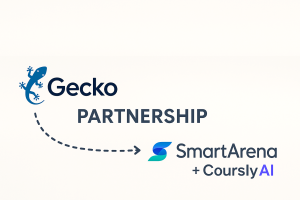Table of Contents
Key Highlights – What is E-Learning?
- Learning through digital platforms allows participants to access educational content anywhere, anytime.
- E-learning brings significant savings in terms of both time and financial resources.
- Advanced learning management systems adapt content to the individual needs of users.
- Interactivity in e-learning increases student engagement through the use of quizzes, videos, and forums.
- The use of artificial intelligence and virtual reality enables innovative and personalized learning experiences.
What is E-learning in the Education World?
Set you also ask, what is e-learning? E-learning means use of digital technologies for access to educational content, regardless of time and place. Instead of traditional classrooms, it enables online learning via computers, tablets and smartphones. In e-learning, students and instructors are often separated both spatially and temporally, which does not hinder interaction – it takes place through forums, chats, video conferences and other interactive tools.
Advantages of E-learning
E-learning brings many advantages that make it popular in both education and business:
- Flexibility and accessibility: Participants can access learning materials anywhere, anytime, allowing them to learn on their own schedule.
- Cost-effectiveness: reduces costs associated with physically attending training sessions, such as travel costs, space rental, and necessary equipment.
- Interactivity: Interactive tools such as quizzes, videos, and forums increase engagement and learning effectiveness.
- Personalization: Advanced learning management systems (LMS) allow for the adaptation of learning paths and content to the individual needs of each student.
- Progress tracking: Teachers and trainers can monitor the progress of participants through LMS systems and adjust content and teaching methods in a timely manner.
Examples of Use
If you are wondering what e-learning is and where and when it is used, the answer is quite simple: can be used anywhere and anytime.
Education and universities
Students can learn through online courses, seminars, and interactive learning content that complement traditional education.
Companies
Organizations use e-learning to employee training, knowledge transfer and development of new competencies, which enables faster adaptation to business challenges.
Certification courses
Online courses allow you to quickly obtaining certificates and skills that are crucial for professional growth.
Lifelong learning
E-learning supports the concept of continuous education, where individuals can continuously upgrade their knowledge and skills.

How is E-Learning Changing Education?
Digital transformation brings innovations, based on advanced technologies. The integration of artificial intelligence, virtual reality and gamification improves interactivity and enables fully personalized learning experiences. Online platforms provide easy access to vast amounts of knowledge, which encourages self-directed and adaptive learning.
Innovative learning systems, such as LMS systems, for example Smart Arena, enable centralized management of learning content, progress monitoring and analytics, which significantly improves learning processes.
What is e-learning with Smart Arena?
Smart Arena is an innovative LMS platform that allows you to easily upload and organize learning materials and track progress. The platform supports personalized learning with interactive elements such as videos, quizzes and forums. It is suitable for both educational institutions and companies, as it reduces costs and improves the accessibility of educational content.
Tips for Implementing E-Learning
To successfully implement e-learning in your organization, consider the following tips:
- Choose the right LMS system: consider platforms like Moodle, Google Classroom or Smart Arena, which allow for easy management of learning content and tracking of progress.
- Design a structured curriculum: Divide learning content into logical modules and units, adapted to different learning styles and needs.
- Include interactive elements: Use quizzes, videos, forums, and other interactive features that encourage engagement and active participation.
- Monitor and analyze progress: Regularly check how participants are progressing and adjust content based on analysis of the data collected.
- Provide support and mentoring: Provide participants with access to mentors and technical support to help them overcome any problems.
Frequently Asked Questions (FAQ)

- What is e-learning? E-learning is use of digital technologies for access to educational content, enabling learning anywhere, anytime via online platforms.
- How does e-learning differ from traditional methods? While traditional education takes place in classrooms with the direct presence of a teacher, e-learning allows for flexibility and individually tailored learning through digital media.
- How to get started with Implementation e-learning in the organization? Choose an appropriate LMS system, design a structured curriculum, include interactive elements, and provide appropriate mentoring and technical support.
A Key Element of Digital Transformation
E-learning is a key element of digital transformation, which is changing the way we access knowledge and learn. With its flexibility, interactivity and personalization, it is becoming an indispensable tool in both educational institutions and businesses.
Follow the tips above and take advantage of the advantages e-learning to improve the efficiency and competitiveness of your organization.
To learn more about e-learning or try out innovative solutions, visit Smart Arena and join the digital education revolution!





